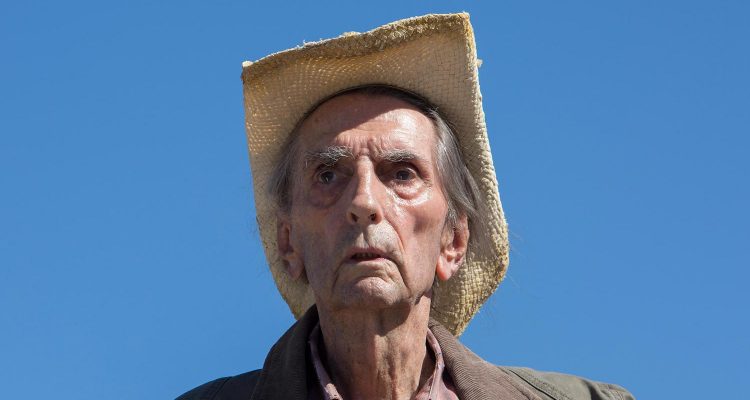The languid melancholy behind Harry Dean Stanton has graced audiences with countless great performances over the past 60 years. Whether it be his role in “Alien,” “Paris, Texas,” “Wild At Heart,” or “Repo Man,” Stanton’s remarkable career is not one to ever be forgotten now that the actor has passed. With that said, 2017 has brought us a swan song for the 91-year-old actor who died this weekend. After reprising his iconic role as Carl Rodd in season three of “Twin Peaks: The Return,” Stanton’s career is brought to full fruition with his role as an irritable yet charming elderly man in John Carroll Lynch’s minimalist directorial debut “Lucky.”
In his acclaimed novel “The Old Man and The Sea,” Ernest Hemingway writes, “Age is my alarm clock…Why do old men wake so early? Is it to have one longer day?” Naturally, as one gets older, the reality of death looms, often accompanied by fear. The passing of time humbles and brings the savoring of every moment; yet, the 90-year-old titular character of “Lucky” is an outlier to this inevitable nature of aging. Yes, Lucky does in fact wake up early every morning in order to do his five yoga stretches and make his coffee with extra cream and sugar; however, he does so not with the fear of death in mind, but rather its inevitability.
READ MORE: The Essentials: Harry Dean Stanton’s Best Performances
Aside from his morning exercises and coffee consumption, Lucky routinely completes crosswords at the local diner, smokes several packs of cigarettes a day and philosophizes about reality and truth with friends in the bar that includes Howard (David Lynch), who loses sleep over his runaway tortoise, President Roosevelt. With all this to say, the impervious, age-defying Lucky is blindsided by a health scare and begins to resonate with the thoughts of those who reach his age — thoughts of kicking the bucket.
“Lucky” is a film perfectly nuanced for Stanton but executed in its full potential by none other — it’s a sobering portrait dedicated to one of cinema’s greatest actors. With a role as ordinary as it may appear on the surface, Stanton manages to transmit an entire career built upon levity and a downtrodden appearance into this ornery old cynic nicknamed Lucky. Stanton frames this existential experience by infusing his pronounced stoic grace. Yet behind his stamped ice-cold impassivity, Stanton presents more than who he was as a performer. He reveals the human being he became, enlightened and ready for his time to pass while exemplifying emotions associated with solitude and the compulsory anxiety of confronting the end of existence.
With the tattered look that came along with a countless number of meditative roles, Stanton’s Lucky makes peace with the fact that a life lived in seclusion may seem feasible, but dying alone is one of the most disquieting realities for any human being to endure. Near the end of the film, the viewer encounters the sentient Lucky in the bar one last time and is scorned by the owner, Elaine, (Beth Grant) for smoking inside. Being the stubborn man he is, Lucky stands his ground and delivers a monologue. While his brief stretch of fearing death and self-reflection is behind him at this point in the film, Lucky placates the bar with a sobering moment — a moment that would bring the entire bar to tears, cheers and heart-warmed smiles. Lucky proceeds to deliver his words in an epiphany: “Truth is a thing. It’s the truth of who we are and what we do, and you have to face that and accept it because the truth of the universe is waiting. You, you, you, you, me, this cigarette, everything. Into blackness! The void and nobody’s in charge and you’re left with ungatz! Nothing. That’s all there is.” The rest of the bar goes on to question Lucky with what they are supposed to do with nothing. Lucky pauses, smirks and utters the words, “You smile.”
There is something entirely melancholic about Stanton delivering these lines — it’s as if his whole life culminated into an apex meant for this moment and these exact words… “You smile.” With his superlative career pent up into this affecting performance, the road has reached an end for the illustrious performer, yet we must cherish and embrace the treasure of a talent he was, and what better way of showing appreciation than going out and seeing this wistful portrait of the autumn of life.
As short as this film feels, “Lucky” is a microcosm to the brevity of life — nothing is permanent, and everything eventually will end, as Stanton explains. However, while we are here on this earth, residing in this universe, we should embrace the present and admire Stanton for a deeply felt farewell performance. Thank you, Harry Dean Stanton, may you rest in peace. [A-]

